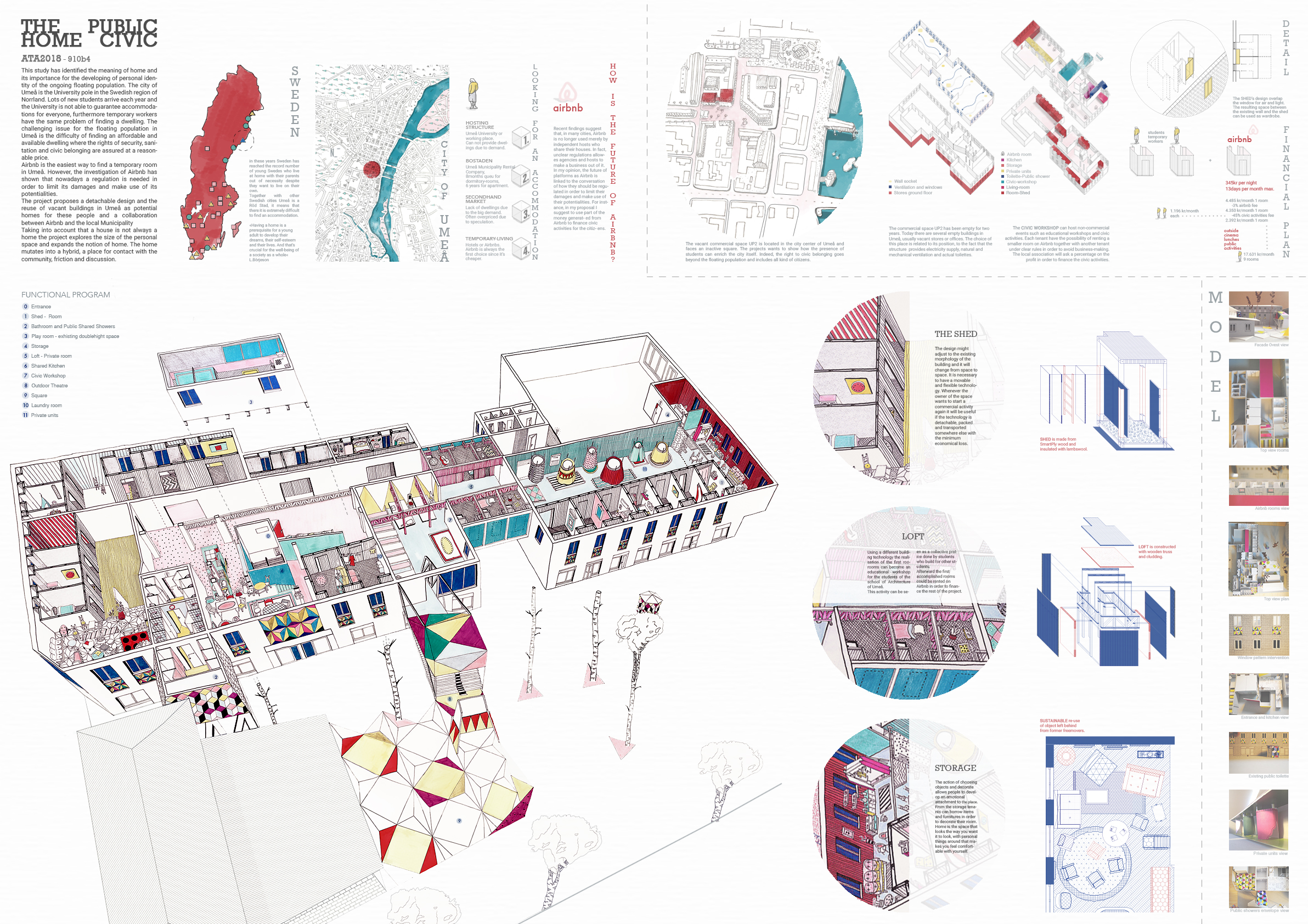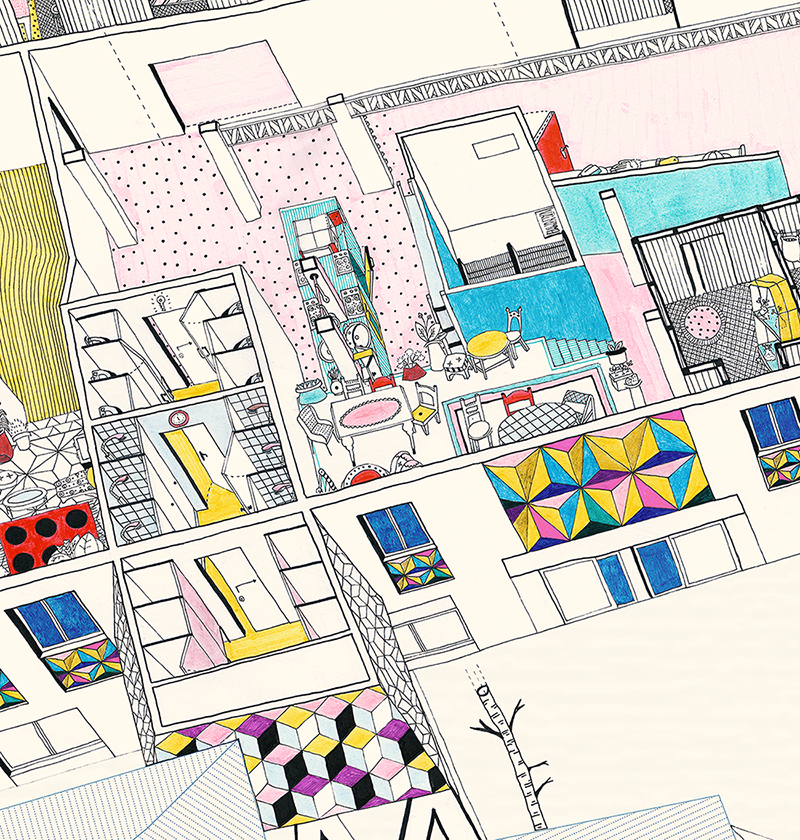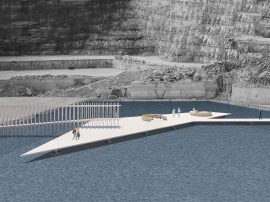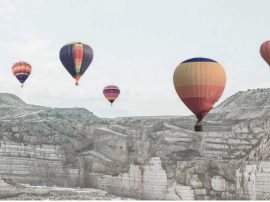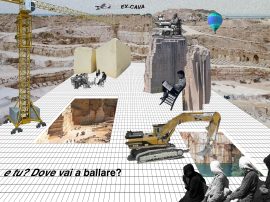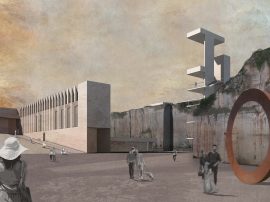I left Italy to study my MA in Sweden and during my studies I also did an Erasmus in Spain. In both cases the process of looking for accommodations became very exhausting. Due to the exploitive rental market, I ended up living in places that did not provide me with a feeling of safety and dignity.
During this period I met plenty of other people who shared my experiences. Talking to them and later realising the scale of the problem led to the beginning of the project. I felt it was relevant to emphasise the importance of having a space where you can truly feel at home, even if it is temporary. Without a residence you cannot vote, without a place to have a shower or sleep you cannot look for a job or establish relationships.
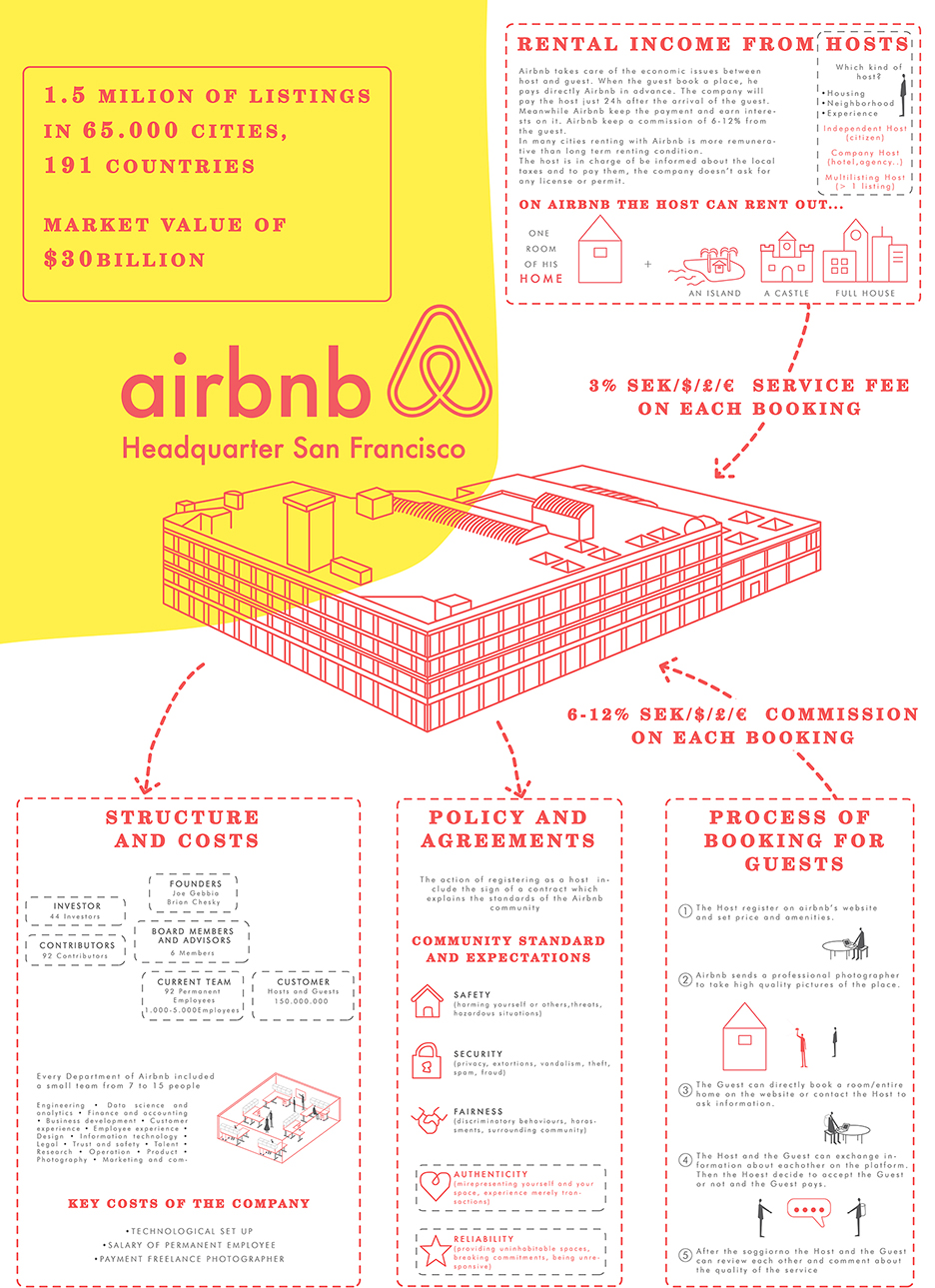
Taking into account that a house is not always a home the project explores the size of the personal and public space and expands the notion of home. The home mutates into a hybrid, a place for contact with the community, friction and discussion. This study has identified the meaning of home and its importance for the developing of personal identity of the ongoing growing floating population. The city of Umeå is the University pole in the Swedish region of Norrland. Lots of new students arrive each year and the University is not able to guarantee accommodations for everyone, furthermore temporary workers have the same problem of finding a dwelling. The challenging issue for the floating population in Umeå is the difficulty of finding an affordable and available dwelling where the rights of security, sanitation and civic belonging are assured at a reasonable price. Airbnb is the easiest way to find a temporary room in Umeå. However, the investigation of Airbnb has shown that nowadays a regulation is needed in order to limit its damages and make use of its potentialities. The project proposes the use of vacant buildings in Umeå during their inactive period as transitory solution for these people and a collaboration between Airbnb, the local Municipality and the local Architecture school in order to enhance the relationship between the city and its citizens.The goal is to transform empty spaces in potential homes, where both tenants' rights and the handling of rental fees can
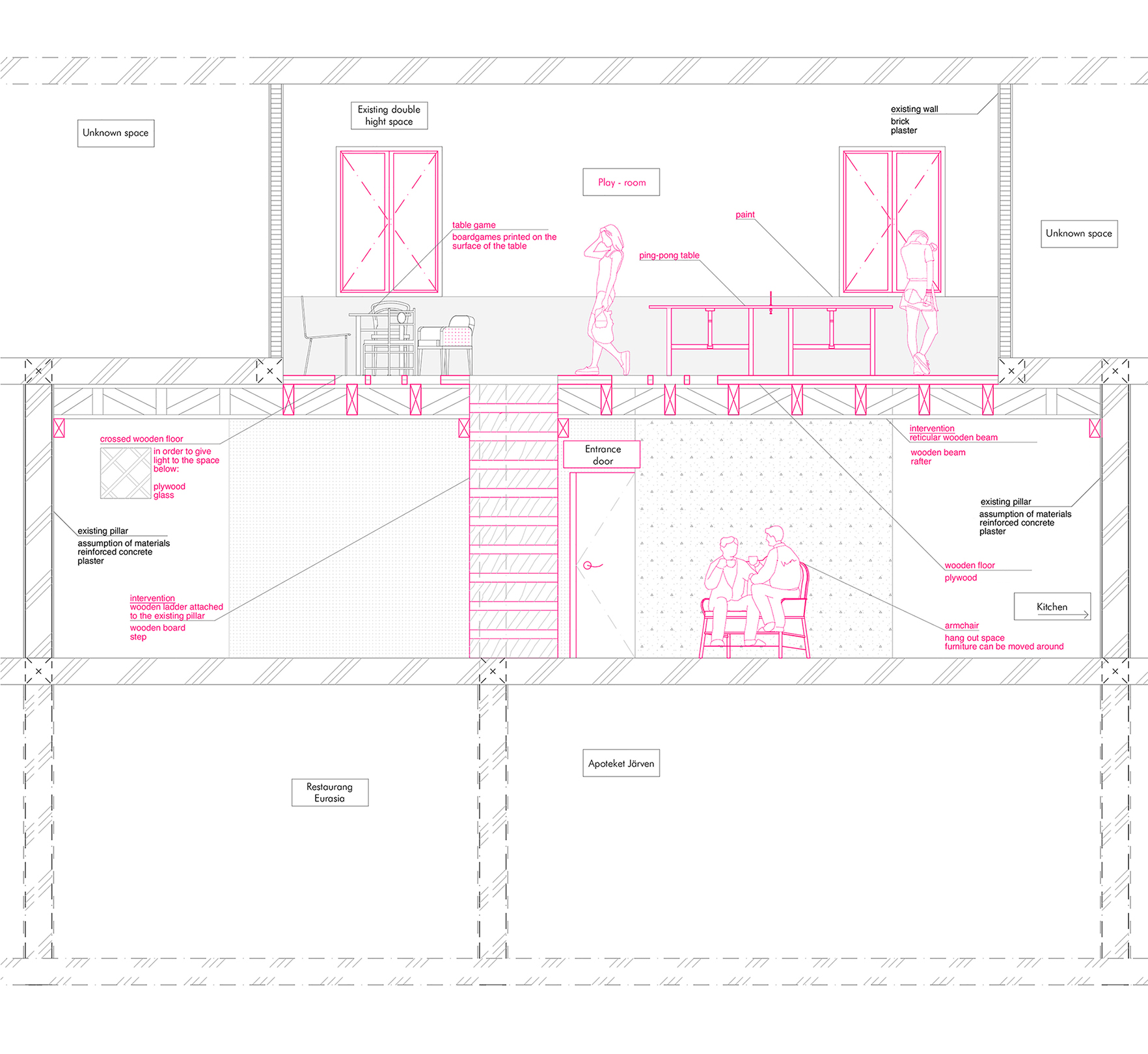
be assured through a careful and strategic regulation. The design might adjust to the existing morphology of the building and it will change from space to space. As a matter of fact, it is necessary to have a movable and flexible technology. Whenever the owner of the space wants to start a commercial activity again it will be useful if the technology is detachable, packed and transported somewhere else with the minimum economical loss. Among all the rooms, six use wooden trusses and could be re-designed and built in an educational workshop, involving the school of Architecture in Umeå. The project could be run and developed by a collective of students and teachers in space and time. The circumstances of renting the movable sheds through Airbnb will be subordinated to clear rules stated in the contract, in the interest of avoiding business-making. Each tenant have the possibility of renting a smaller room on Airbnb together with another tenant. The incoming money can be used to finance the construction, the rent and the organisation of civic activities open to the public. By hand-drawing the space I was able to better communicate the sense of home. It started merely as a tool to explore the spaces during the thinking and design process but throughout the development of multiple sketches of the same view the technique melted with the proposal. Given that the project challenges the concept of home, it was interesting to explore different architectural representations as well.
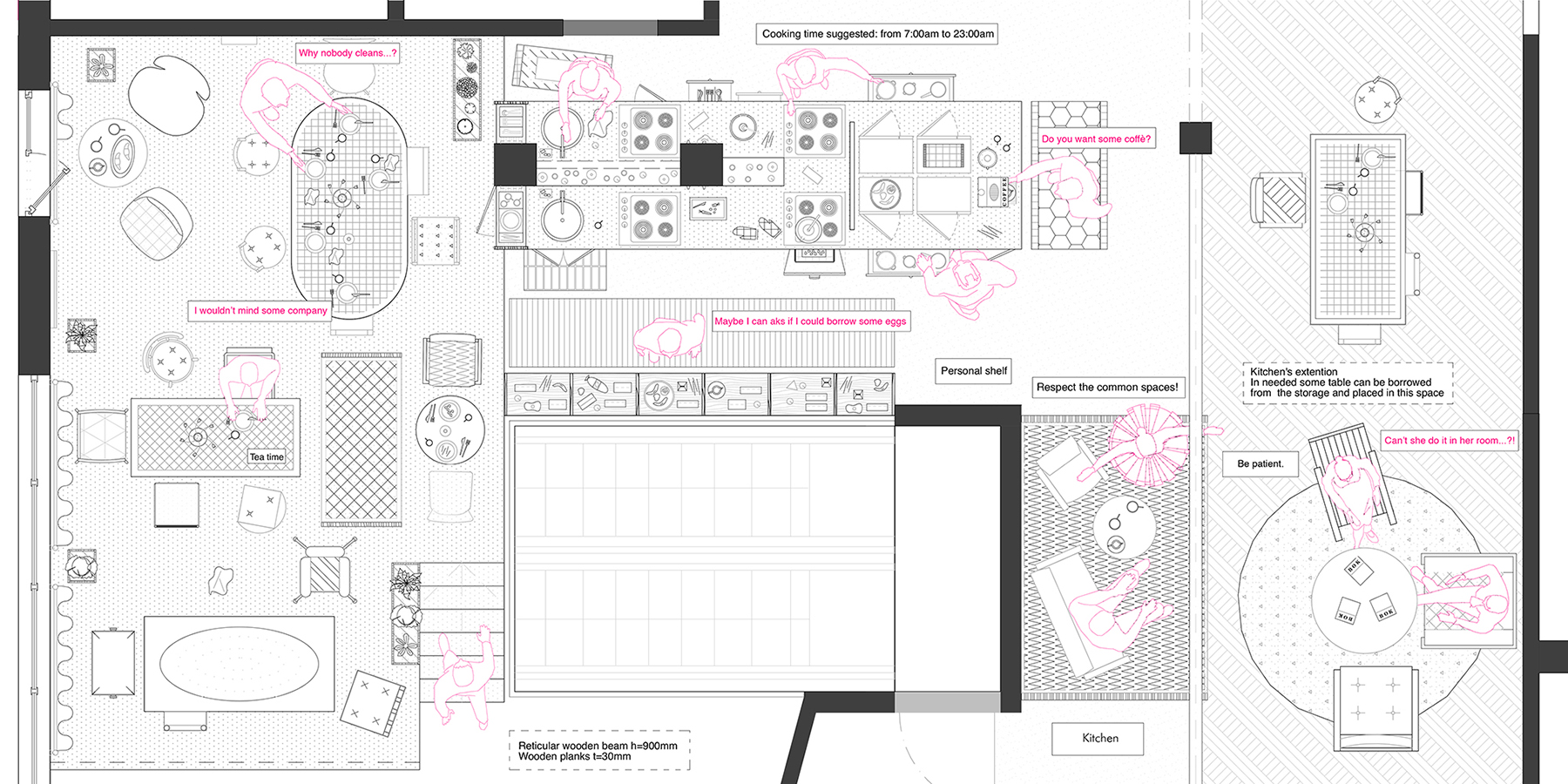
The Board:
